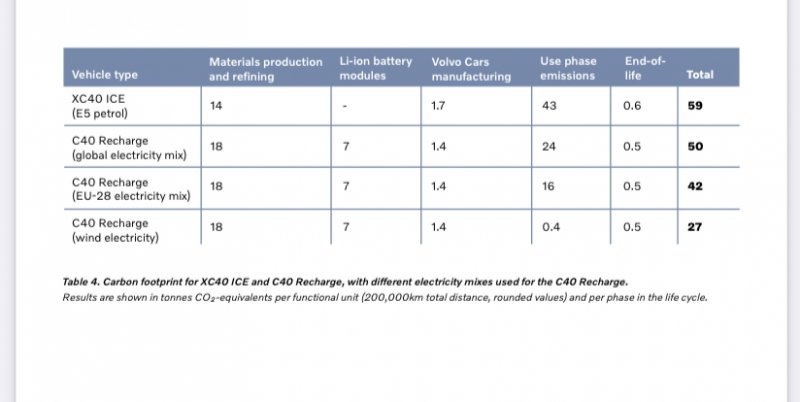No that’s no what I’m saying. My point is that I believe reducing consumption (fewer overall cars and fewer new cars) and human behaviours (all kinds of behaviours including the way people drive) is much more likely to impact the carbon footprint than tech.
I’m also not at all convinced by the total lifetime carbon footprint calculation of an EV… I remain open to be convinced if I see a holistic and objective study.
Yes it is quite confusing in terms of lifetime carbon footprint of EV vs ICE. So confusing that I decided to go a bit deeper and look at what really determines the distance a vehicle travels in its lifetime at which an EV starts to be better than an ICE in terms of total emissions.
It basically comes down to the extra emissions needed to produce the battery vs the savings in emissions during use (electricity vs petrol), or a fixed vs variable emissions cost calculation.
Apart from manufacture of the car itself, use emissions for ICE consists of extraction, transport & refinery of the oil (relatively less important) and the eventual burning of the fuel in the engine (by far the largest component).
Apart from manufacture of the car itself, use emissions for EV are determined by the mix of energy sources used to produce the electricity which are different per country and sometimes per energy company. In the UK this is 233gr CO2/KWh, in South Africa a whopping 1kg/KWh because they use predominantly coal to generate electricity.
In terms of manufacture, the size of the battery and what energy source is being used to produce the battery determine the extra “fixed emissions cost” of going EV. Most studies (dating around 2017) indicate that this was between 50 and 150 kg/KWh which is coming down every year as more sustainable sources are being used to generate electricity. 50 was for a European country, 150 for Asian countries (more or less). For a BMW i3 this works out at about 3,000 kg CO2 it needs to earn back from driving.
In the UK the point at which an i3 becomes better in terms of emissions is then just over 13k miles. In South Africa it is about 60k miles. As we convert to more sustainable electricity generating practices this will come down. In most of the 1st world this is coming down fast so you need to factor that into the decision of whether an EV will work for you. Just remember this is the lifetime emissions, not the emissions you generate for how long you have the car.
The average lifetime of a car in the UK is 13.5 years and the average mileage is 6,800 miles which works out to a total average mileage of 91,800 per car. We have an i3 driving around in SA that has done over 200k miles so it would seem that the average mileage is not a problem in terms of life span. The maths look to be firmly in favour of replacing ICE with EV if we disregard practical reasons in terms of range and charge times. Fortunately the charge times are coming down and the range is increasing with rapid technological advances, so the practical aspects will become less of a concern.




